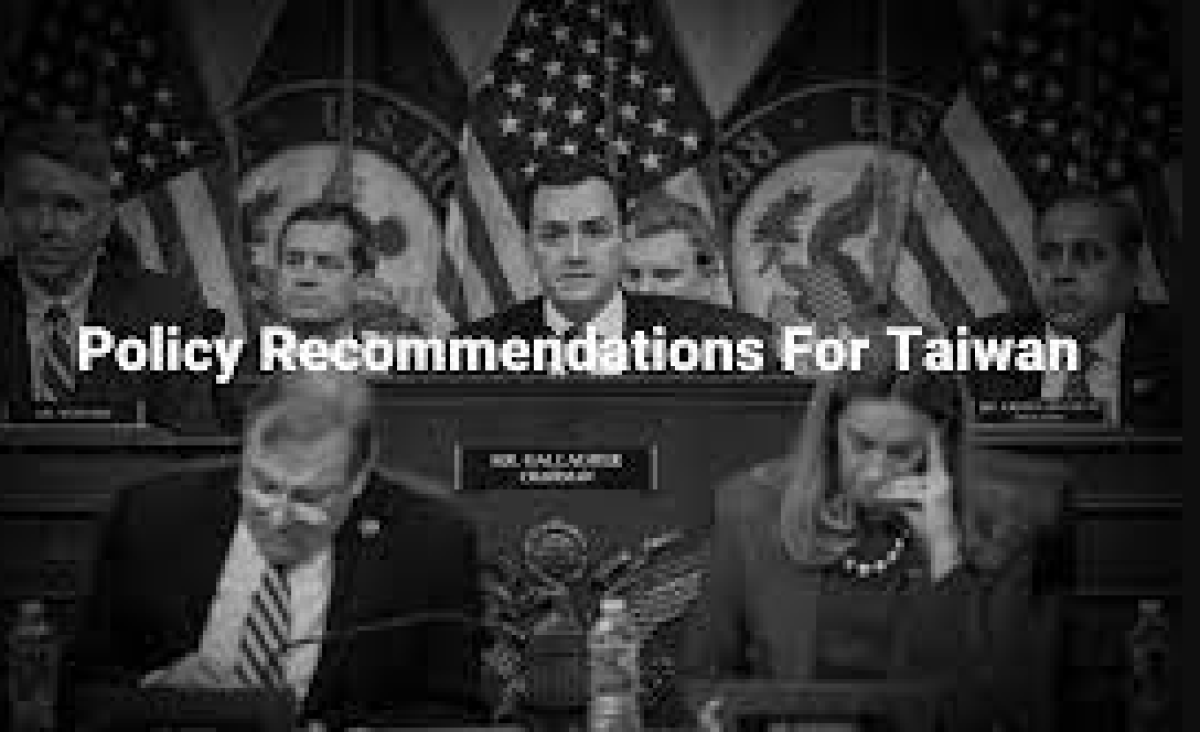Chairman Gallagher's Opening Remarks at the "TEN FOR TAIWAN: Policy Recommendations to Preserve PEACE and STABILITY in the Taiwan Strait and The Chinese Communist Party’s Ongoing Uyghur Genocide" Business Meeting to Consider Two Select Committee Reports

Click HERE to see full remarks.
-
TEN FOR TAIWAN: Policy Recommendations to Preserve PEACE and STABILITY in the Taiwan Strait
80,000 PLA troops on the island of Taiwan. Runways on Guam destroyed. Dozens of our F-35s vaporized. Our long-range munitions largely depleted in just six days. Financial markets tanking. Shipping insurance halted. Global trade frozen.
At the Select Committee’s Taiwan wargame, we saw the terrifying result of deterrence failure. Today is about doing what we can to make sure that game stays fictional.
So what did we learn?
We are entering the window of maximum danger.
Neither Taiwan nor the United States seeks to change the status quo across the Strait–a peaceful order has enabled the economic rise of countries across Asia. Only Beijing seeks to upend the prosperous equilibrium.
Neither the US nor Taiwan had nearly enough critical munitions in the theater to deter the CCP.
If we want to have a hope of stopping world war III we need to arm Taiwan to the teeth right now. We must clear the embarrassment that is the $19B FMS backlog.
We must reinvigorate our defense industrial base yesterday and crank out critical munitions like long range anti-ship missiles.
It’s imperative to get our allies and partners on board with the idea of economic deterrence long before the shooting starts. Russian sanctions negotiations will look like a cakewalk by comparison.
We hosted a roundtable with three great experts who drilled down into the common sense, bipartisan things we can do in this NDAA to strengthen deterrence in the Taiwan Strait and prevent war.
Together with the minority staff and member office input, we’ve put together ten policy recommendations that can enhance deterrence NOW and can pass this Congress.
But in closing I recommend the written testimony that Oriana Skylar Mastro submitted. She lays out 4 principles of deterrence, but for right now I’m just going to skip to #4:
“4) How do we signal to China that taking Taiwan will be too costly or too difficult?
Step one, make it true. Then talk to me about messaging.“
So that’s our job. Make it true. And make sure the deterrence failure in our wargame stays fictional.
---
The Chinese Communist Party’s Ongoing Uyghur Genocide: Policy Recommendations
On April 4th, 1945 U.S. Army forces first liberated a Nazi concentration camp, part of the Buchenwald system. General Dwight Eisenhower, Supreme Commander of Allied Forces in Europe, rushed to visit the camp on April 12th. In a cable back to General George C. Marshall, U.S. Army Chief of Staff in Washington, Eisenhower was shaken:
The things I saw beggar description. … The visual evidence and the verbal testimony of starvation, cruelty and bestiality were so overpowering as to leave me a bit sick ... . I made the visit deliberately, in order to be in a position to give first-hand evidence of these things if ever, in the future, there develops a tendency to charge these allegations merely to “propaganda.”
With V-E Day still almost a month away, Eisenhower fired off the extraordinary request that twelve bipartisan members of Congress fly over to an active war zone to see the atrocities.
Eisenhower foresaw that a bipartisan delegation from Congress had a special role to play in exposing the Nazi’s genocide.
At our Select Committee’s hearing on the ongoing Uyghur Genocide, Congress was once again witness to soul-chilling evidence of crimes against humanity.
We heard from experts that the policy of forced sterilization, forced IUD insertion, and forced abortion easily clears any commonly used definition of genocide.
We heard that the detainment of Uyghurs is the largest internment of an ethno-religious minority since the Holocaust
We heard the entire region has been turned into an open-air prison through the most oppressive techo-totalitarian surveillance system ever devised.
We heard Nury Turkel name American companies “financing the state-sponsored forced labor programs.”
Most importantly, we heard from Gulbahar Haitiwaji and Qelbinur Sidick, first-hand witnesses in the camps.
Naomi Kikoler, from the Holocaust Museum, told us that visitors often wonder what they would have done if they’d lived through the Holocaust.
“Today,” she said, “we want people to ask ‘Now that I know, what will I do?”
Well, today, with these policy recommendations, we on the Select Committee can answer that question.
Let’s send a bipartisan message that Congress will stand up to genocide, the crime above all crimes, in the 118th Congress.